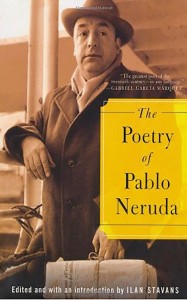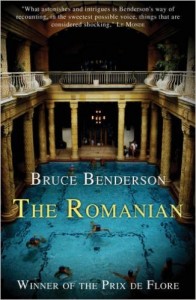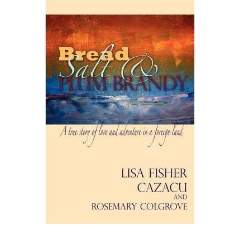NOT WITHOUT MY BOPPA: “Big Tits” – The Story of a Girl’s Private Education in Switzerland

Lake Geneva
From the outset, may I apologize to you, dear Reader: this is neither an essay on the Ornithology of certain singing birds: it is rather, as such slang word may suggest an unusual story about mammary glands, that often make the object of voyeurism.
Please do not be disappointed, dear Reader, if I tell you that the matter is far more serious than that: this particular piece has to do with a subject of public concern, whether, enforcing political correctness, fighting sexism and above all protecting one’s daughters, especially those of pubertal age, of pressure exerted on them by certain male teachers without any scruples!
 Well, yes, I hope I made my intentions clear from the outset: this little discourse has to do with the propriety of Education of beautiful, if impressionable, young ladies, ensconced in cloistered education establishments, of the Swiss Alps. The inevitable happens, whilst in the upper form (and who could blame them?), when, all of a sudden, daughters discover the development of certain physical attributes, which, somehow, attract the attention of the opposite sex. Such males would range in age from the younger, gauche and inexperienced hopefuls, full of testosterones, all the way to over-the-hill bucks, with short horns and still having one, or two, spare hormones to spend. These buck specimens may differ from each other a great deal, but make no mistake, what they all have in common is a predatory streak.
Well, yes, I hope I made my intentions clear from the outset: this little discourse has to do with the propriety of Education of beautiful, if impressionable, young ladies, ensconced in cloistered education establishments, of the Swiss Alps. The inevitable happens, whilst in the upper form (and who could blame them?), when, all of a sudden, daughters discover the development of certain physical attributes, which, somehow, attract the attention of the opposite sex. Such males would range in age from the younger, gauche and inexperienced hopefuls, full of testosterones, all the way to over-the-hill bucks, with short horns and still having one, or two, spare hormones to spend. These buck specimens may differ from each other a great deal, but make no mistake, what they all have in common is a predatory streak.
It’s all very unsettling, indeed, for any Father of such ingénues, trying to control the proceedings by proxi, that is from England to Switzerland. Finally, in order to avoid sleepless nights, one would have to concede some element of trust of the school in question, exercising common sense and especially enforcing strict rules, not to allow for any surprises….
Once in a while, a parental visit during one of those grand PR events, which the School is so good to stage-manage, such as an ‘Open Day’, or a Parents-Teachers Meeting, gives one some much-needed reassurance, that “all is well in the best of the worlds”!
And why should it not be, when the fees of this boarding school near Montreux, nestled in the midst of the most delightful landscapes, overlooking Lake Geneva, on one side and the Swiss Alps on the other side, not ensure an impeccable education? After all this establishment has an excellent track record AND, in the bargain, a long history tradition behind it, with impressive results, all in one? Who would complain, especially when the student-to-teacher ratio is so invidious? AN example in point is the Spanish class, with only two students for one teacher! which brings me to the object of my story: that is to say, to…. “Big Tits”!
 But before I will go into, what may sound, a salacious subject, let me give you some background details: I was called to this very important annual meeting of parents-teachers, to find out about the crucial projections of my daughter’s final results, which would have secured for her a place at a good university in England. I came with high expectations, tinged by a certain trepidation, because I had not seen my beloved daughter for quite a few weeks and that I wanted to make sure that everything regarding her education was on track: here we were buying ‘quality’ in a very pleasant environment and a commensurate high price, albeit three times higher than any private school in England and by American standards, certainly comparable to the fees of foreign students at Harvard, or any ivy university. Besides, it was opening a big window onto the world – the students came from many a West European family, each with a story of success and the whole outfit was stimulating. I allowed for a few extra days to spend in Montreux, a short distance from School, to get to talk more with daughter, to ask some of her friends and friends’ parents to dinner, to revisit the school and talk to the Head Mistress, to heads of Studies and to the teachers, all with notes and tables in hand, giving the good news one expected.
But before I will go into, what may sound, a salacious subject, let me give you some background details: I was called to this very important annual meeting of parents-teachers, to find out about the crucial projections of my daughter’s final results, which would have secured for her a place at a good university in England. I came with high expectations, tinged by a certain trepidation, because I had not seen my beloved daughter for quite a few weeks and that I wanted to make sure that everything regarding her education was on track: here we were buying ‘quality’ in a very pleasant environment and a commensurate high price, albeit three times higher than any private school in England and by American standards, certainly comparable to the fees of foreign students at Harvard, or any ivy university. Besides, it was opening a big window onto the world – the students came from many a West European family, each with a story of success and the whole outfit was stimulating. I allowed for a few extra days to spend in Montreux, a short distance from School, to get to talk more with daughter, to ask some of her friends and friends’ parents to dinner, to revisit the school and talk to the Head Mistress, to heads of Studies and to the teachers, all with notes and tables in hand, giving the good news one expected.
Daughter, who had, what they called a ‘real talent’ for languages, took for her Majors English, French, Spanish and Economics. Don’t ask me why Economics: I seem to remember because she was of an impressionable age, when she took a fancy to this Hollywood sequence of movies on the World of Finance: “Dynasty” and “Dallas” – what a to-do! These movies had an unexpected impact as they made her think that Economics might open her the right doors to Corporate Banking and Glamour – one must not forget! In retrospect may this teenage girl be forgiven, as we speak about the ‘80s, long before the huge domino effect of financial bankruptcies, during which more decent culprits committed suicide, whilst the less decent ones rode into the sunset of financial despair and oblivion, in the process dragging along with them a few politicians and scores of investment aficionados…

Costa del Pain
Back to the story of our delightful school, I was not there to be awkward, or to ask any aggressive questions: I was there to absorb the facts! I met the Mother of the other student with whom daughter shared the Spanish class – just two students to one teacher ratio: how could I complain? It could not have been better! Still, I found it somewhat unusual not to see that a Castilian native ought to have taught the language, rather than an Anglo-Saxon, teaching Spanish! But I was happy to give the fellow the benefit of the doubt, as I was reassured that he was ‘fluent’ (it was a language that I did not speak and could not double-check myself) and, most interestingly, this teacher, i was reassured had as an additional feather in his cap, the fact that he was the
‘owner of a cottage in Spain’… as if being the owner of a shack on some
‘Costa del Pain’ vouched for the greatest refinements of linguistic diligence!

I shrug my shoulders and said nothing, but I did inquire with the Mother of the other student, with whom daughter shared the Spanish class: this was an English lady resident in France, just outside Paris, at Chantilly, a place renowned for racing horses, where her husband was having stables and was a neighbor of breeders, such as Aga Khan, and where the Count of Paris, the Princes de Broglie and other royal and aristocratic families had their
chateaux. We got on well and although I did not come anywhere near to horses, myself, since my early days when I rode a pony in the grounds of the Royal castle of Sinaia in the Carpathians, daughter was an accomplished rider and her grandfather bred horses in Ireland. When we met at this Swiss boarding school I conversed in French to this parent and reminisced about common acquaintances in Chantilly. So, in the end we exchanged visiting cards and promised to stay in touch, to consult, if need be, on educational matters of common interest. As it happened, one could not have done it too soon, as the opportunity arose out of the blue, and it fell on this Father like a thunder bolt:
– ‘You know?’, daughter told me, half incredulously and half bemused, ‘you know, Pa’ and then she paused…
– ‘Well, how shall I put it, to you, Pa? When we entered class, the other day, the Spanish teacher had already marked in chalk, on the black board, in English, that is, “BIG TITS”, in capital letters
– ‘Big Tits? I asked, ‘What on earth for? It can’t be! Are you serious?’
– ‘Yes I am, I saw it! We both saw it, Catherine and I. We looked at each other and laughed. It was embarrassing!’
– ‘Of course it was!’
I could hardly do anything on the spot, as daughter kept this bombshell to the end of my stay in Switzerland, like the icing on a cake and shortly I would have had to catch a flight back to England. On hearing these news, I took a breath in and asked myself, why spoil such a nice stay, as one could not discuss this issue, properly?
Nonetheless, I can assure you, this was precisely when my sleepless nights started. I was brooding over an effective strategy, some kind of a convincing and well-structured letter, intended for the School Mistress and causing the Spanish teacher to be removed at once! But how? We only had 50% of the votes in class and I had better made common cause with Catherine’s mother to start the Crusade together.
I rang her the following day:
– ‘How nice to have met you!’
– ‘Yes, it was most enjoyable to talk about so many friends!’
– ‘And about the races at Chantilly, too!’ I added, not knowing much about the subject.
– ‘Now’, I said in a conspiratorial voice, ‘I must take you in my confidence!’ Have you seen the Spanish teacher? What impression he made on you?’
– ‘Well’, she said, prudently, ‘he is not one of my favourites, but at least he does his job well, I hope.’
– ‘Why? Do you speak Spanish?’
– ‘No, I don’t, but the school has its reputation at stake.’
– ‘Precisely’, I retorted, grateful for the opening:
– ‘This is exactly what I was going to consult you about, in greatest confidence, I added for dramatic impact.
– ‘Have you heard of what goes on in the Spanish class? Did Catherine tell you anything about it?’
– ‘No, she did not!’
– ‘Well, I could tell you, if you would forgive my vernacular English:
– ‘….’
– ‘As the girls entered class, last week, what did they see, written in English, on the blackboard?’ I paused for a greater effect, then I gave the answer.
– ‘They saw written “BIG TITS”… in capital letters…’
– ‘But this is serious!’ she conceded, as the news sank in.
– ‘Yes it is and you better ring your daughter to find out more on the subject and then we should consult again, soon after, to see what concerted action we might take regarding this rogue teacher’.
We spoke a few days later: this time she rang me from France. In the meantime I rang daughter in Switzerland, to make sure that I got the facts right. I was determined to have this man removed, to restore my peace of mind and protect daughter from a sexual predator, within the very precincts of a reputable International boarding school.
– ‘So, did you speak to Catherine?’
– ‘Yes I did and you were right: it is quite appalling!’
– ‘And unacceptable: we must have him removed, at once!’ to which I added:

“Wacky’ and “Big Tits” go together
– ‘I spoke further to Giselle and she tells me that on occasions, he asks girls to afternoon tea, at a nearby hotel and plies them with cocktails. He should not be doing that! It’s against the law and these girls ought to be protected. He seems to see that all this is “WACKY”! Do you know what “wacky” means? Because I never heard such word before!
– ‘No’ she said, ‘I must admit, I never heard such word either!’
– It seems to me, whatever it may be, that “wacky’ and “big tits” go together in this man’s mind. He also happens to be married to another member of the staff, who is the Head of Modern languages department: it will be a sensitive issue for her, because she could hardly be expected to sack her own husband for misdemeanor.’
– ‘I understand, but this will be a matter for the Head Mistress and for the School Governor’.
I spoke to the Head Mistress, before I sent the missile in her direction. She did her little inquiry and saw that everything was done according to rules AND especially according to Swiss employment Laws, to avoid any potential ‘unpleasantness over claims for unfair dismissal’.
In the process, I found out that “Big Tits”, as I came to call him, was half the age of his wife and that he was trying to redirect his marital frustrations to pubescent girls, in exclusive schools.
True to tradition, as we were in the Swiss Alps, the story snowballed, as it were, causing a mini-avalanche, or snow storm, as both: “Big Tits” AND his wife resigned… This was made possible following some financial inducement from the school, to make them depart quietly, on the basis that ‘no further action was to be taken’ against him. After all, who wants a fuss over this, anyway?
Eventually, daughter finished school and got her projected three ‘A’s in languages and, unsurprisingly, she just scraped, at the limit, with an “E” for Economics… better than an “F” for French or an ”S” for Spanish, I thought to myself… Yet, in all fairness, these were languages that this Father insisted that all his children should add to their belts from an early childhood and whatever fluency they acquired, this was due to extracurricular private language tuition: Spanish in Madrid and French in Paris.
So, this is how, following this happy conclusion brokered by the School, this fee-paying Father regained his good sleep, but, as it turned out not for long, which is another story!


























